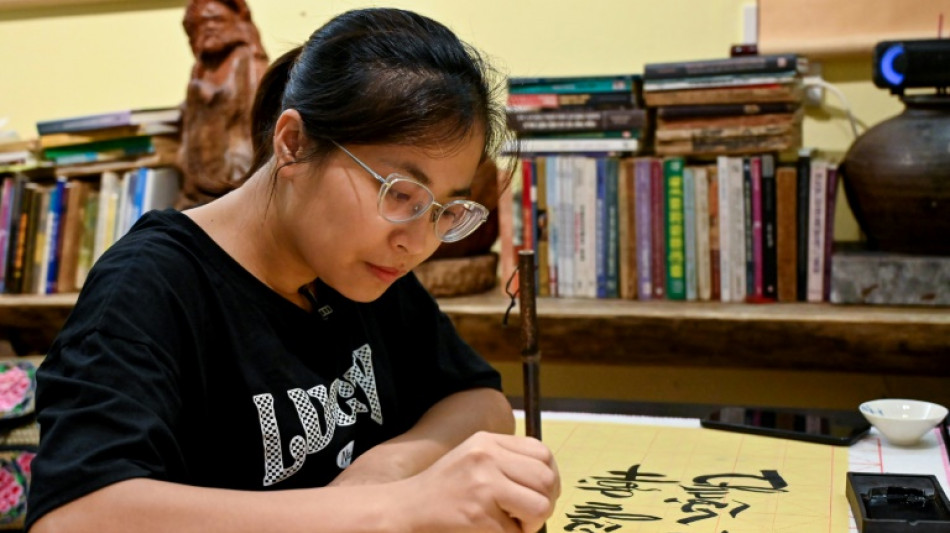
-
 UK renationalises first train operator under Labour reforms
UK renationalises first train operator under Labour reforms
-
Syria to help locate missing Americans: US envoy
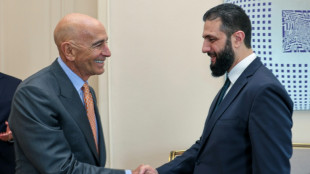
-
 Container ship sinks off India's south coast with hazardous cargo
Container ship sinks off India's south coast with hazardous cargo
-
Trier misses out on top Cannes prize again

-
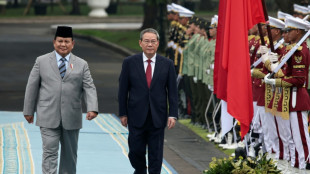 Indonesia, China agree to bolster ties ahead of ASEAN summit
Indonesia, China agree to bolster ties ahead of ASEAN summit
-
Norway's Trier is bridesmaid again at Cannes

-
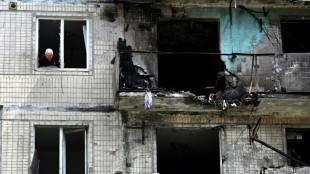 12 killed as Russia pummels Ukraine in fresh night of strikes
12 killed as Russia pummels Ukraine in fresh night of strikes
-
Opposition vows boycott as Venezuela holds divisive new vote

-
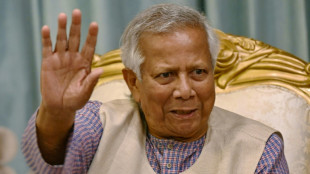 Bangladesh's Yunus seeks unity with fresh political talks
Bangladesh's Yunus seeks unity with fresh political talks
-
Nine killed in Ukraine as it trades fire with Russia overnight
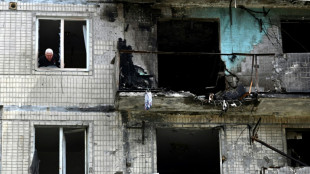
-
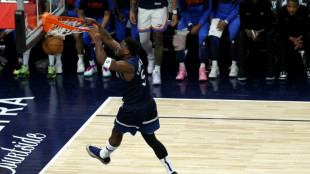 Timberwolves silence Thunder to tighten NBA playoff series
Timberwolves silence Thunder to tighten NBA playoff series
-
Chinese 12-year-old Yu Zidi set for world stage after stunning swims
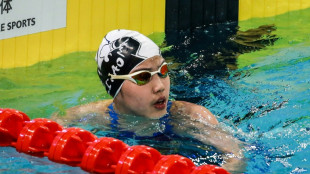
-
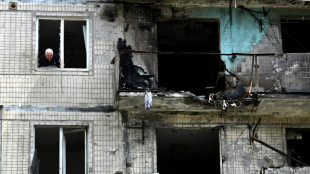 Three killed in Kyiv region as Russia, Ukraine trade drone fire
Three killed in Kyiv region as Russia, Ukraine trade drone fire
-
T-Wolves silence Thunder to tighten NBA playoff series
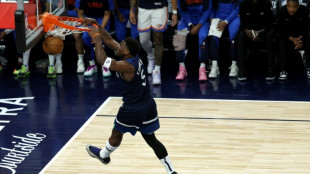
-
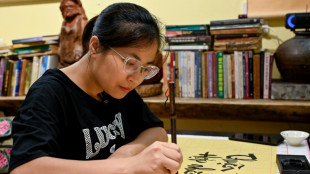 'It's in our blood': how Vietnam adopted the Latin alphabet
'It's in our blood': how Vietnam adopted the Latin alphabet
-
In India's congested cities, delivery apps cash in

-
 Messi and Miami fight back for 3-3 draw at Philadelphia
Messi and Miami fight back for 3-3 draw at Philadelphia
-
Chiefs grab Super Rugby top spot with record-breaking Moana romp

-
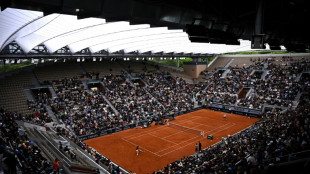 Nadal to bid Roland Garros farewell, Sabalenka starts title bid
Nadal to bid Roland Garros farewell, Sabalenka starts title bid
-
Informal therapy offers healing at George Floyd memorial
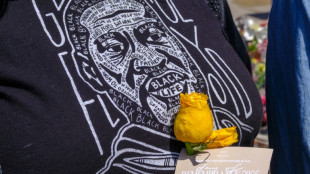
-
 George Floyd's uncertain legacy is marked five years on
George Floyd's uncertain legacy is marked five years on
-
Syria reboots interior ministry as Damascus seeks to reassure West
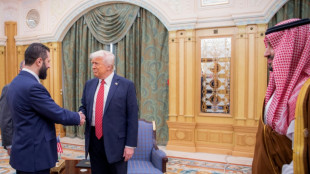
-
 DEA's Internal Marijuana Resistance: MMJ BioPharma Delays Reflect a Wider Cannabis Rescheduling Crisis
DEA's Internal Marijuana Resistance: MMJ BioPharma Delays Reflect a Wider Cannabis Rescheduling Crisis
-
Bae holds on to LPGA lead in Mexico

-
 Schmid and Griffin share lead with Scheffler lurking at Colonial
Schmid and Griffin share lead with Scheffler lurking at Colonial
-
Filipino trailblazer Eala set for Grand Slam debut in Paris
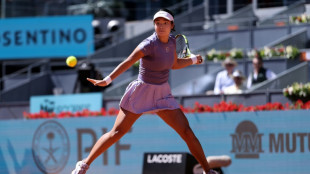
-
 'Up for anything': Stuttgart eye Berlin nightlife after cup triumph
'Up for anything': Stuttgart eye Berlin nightlife after cup triumph
-
How 'calm' Arsenal dethroned women's Champions League giants Barca

-
 PSG beat Reims to win French Cup ahead of Champions League final
PSG beat Reims to win French Cup ahead of Champions League final
-
At 2nd inauguration, Noboa vows to 'save' Ecuador from gangs

-
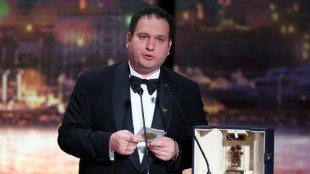 Iraq's first ever director in Cannes wins best feature debut
Iraq's first ever director in Cannes wins best feature debut
-
Dissident Iranian filmmaker Panahi wins Cannes top prize
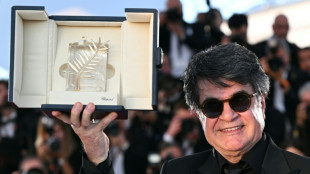
-
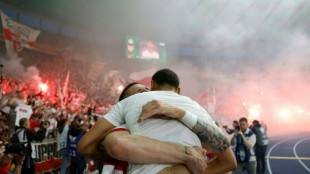 Stuttgart survive late Bielefeld scare to win German Cup
Stuttgart survive late Bielefeld scare to win German Cup
-
'Palme d'Or whisperer': US distributor Neon picks Cannes winner again

-
 Three things we learned from England's rout of Zimbabwe
Three things we learned from England's rout of Zimbabwe
-
'I only feel pain': Barca's Putellas after Champions League defeat

-
 After brief X outage, Musk says refocusing on businesses
After brief X outage, Musk says refocusing on businesses
-
Le Bris hails Sunderland's 'impossible' promotion to Premier League
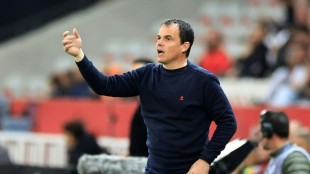
-
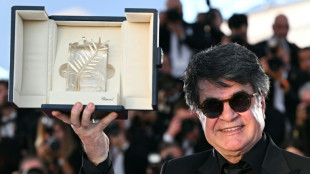 Iranian filmmaker Panahi urges 'freedom' as he wins Cannes top prize
Iranian filmmaker Panahi urges 'freedom' as he wins Cannes top prize
-
Hamilton hit with three-place grid penalty in Monaco
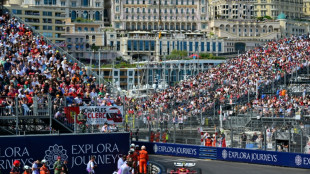
-
 'Hasn't sunk in yet': Arsenal's Blackstenius after Champions League winner
'Hasn't sunk in yet': Arsenal's Blackstenius after Champions League winner
-
England captain Stokes defends hundred hero Pope from negative 'agenda'

-
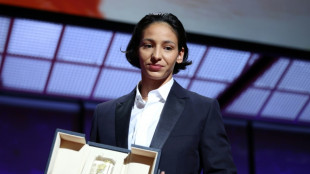 Cannes best actress Melliti is football player spotted in street
Cannes best actress Melliti is football player spotted in street
-
Bordeaux-Begles join club rugby's 'top table' with Champions Cup glory

-
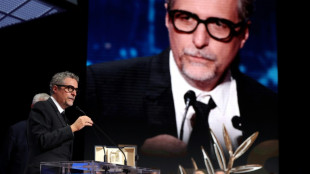 Brazil's truth-teller Mendonca Filho's double Cannes win
Brazil's truth-teller Mendonca Filho's double Cannes win
-
Rescuers say 9 children of Gaza doctor couple killed in Israeli strike
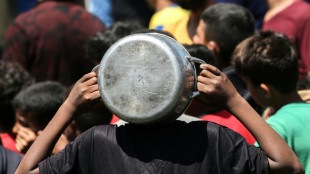
-
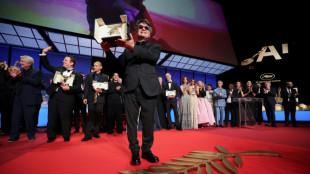 Dissident Iranian filmmaker Panahi wins top prize at Cannes
Dissident Iranian filmmaker Panahi wins top prize at Cannes
-
Valiant Arsenal shock Barca to win women's Champions League

-
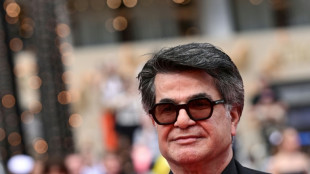 Jafar Panahi: Iran's dissident director who lives for cinema
Jafar Panahi: Iran's dissident director who lives for cinema
-
Zimbabwe skipper Ervine wants more matches in England after Test thumping


'It's in our blood': how Vietnam adopted the Latin alphabet
At a calligraphy class in Hanoi, Hoang Thi Thanh Huyen slides her brush across the page to form the letters and tonal marks of Vietnam's unique modern script, in part a legacy of French colonial rule.
The history of romanised Vietnamese, or "Quoc Ngu", links the arrival of the first Christian missionaries, colonisation by the French and the rise to power of the Communist Party.
It is now reflected in the country's "bamboo diplomacy" approach of seeking strength through flexibility, or looking to stay on good terms with the world's major powers.
A month after China's Xi Jinping visited, French President Emmanuel Macron will arrive on Sunday.
Huyen, 35, takes weekly calligraphy classes alongside six others at her teacher's tiny home as "a way to relax after work".
"When I do calligraphy, I feel like I'm talking to my inner self," she told AFP, her head bent in concentration.
- Missionaries, civil servants -
On Monday, Macron is due to visit Hanoi's star attraction, the Temple of Literature, whose walls and explanatory panels are decorated with calligraphy in both traditional Chinese-influenced characters and Quoc Ngu.
Colonisation led to the widespread use of Quoc Ngu -- which uses accents and signs to reflect the consonants, vowels, and tones of Vietnamese -- but it was created two centuries earlier on the initiative of Catholic priests.
When the Avignon-born Jesuit Alexandre de Rhodes published the first Portuguese-Vietnamese-Latin dictionary under his own name in 1651, it was primarily intended for missionaries wishing to spread their religion in what was then called "Dai Viet".
The French then spread the Latin alphabet while training the civil servants who helped them govern Indochina, explained Khanh-Minh Bui, a doctoral student at the University of California, Berkeley, specialising in 19th- and 20th-century Vietnamese history.
Another motive was "severing connections with an older civilisation, which has greatly influenced the elites", in this case China, she said.
- Artistic freedom -
Compared to the characters that had been in use for centuries, Quoc Ngu was far easier to learn.
Its adoption fuelled an explosion in newspapers and publishing which helped spread anti-colonial ideas that ultimately led to the rise of the Communist Party.
"Quoc Ngu carried the promise of a new education, a new way of thinking," said Minh.
When Ho Chi Minh proclaimed independence in 1945, it was "unthinkable" to turn back the clock, she added.
Today, a Western tourist lost in the alleys of Hanoi can read the street names, but would have a hard time pronouncing them correctly without understanding the diacritics used to transcribe the six tones of Vietnamese.
Calligraphy teacher Nguyen Thanh Tung, who has several young students in his class, says he has noticed rising interest in traditional Vietnamese culture.
"I believe that it's in our blood, a gene that flows in every Vietnamese person, to love their traditional culture," he said.
Calligraphy in Quoc Ngu offers more artistic freedom "in terms of colour, shape, idea" than that using characters, he believes.
"Culture is not the property of one country, it's an exchange between regions," added Tung, 38.
"English and French borrow words from other languages, and it's the same for Vietnamese."
Ch.Havering--AMWN